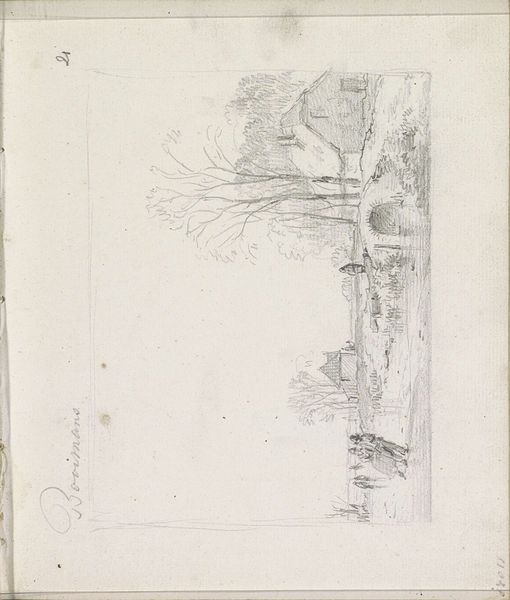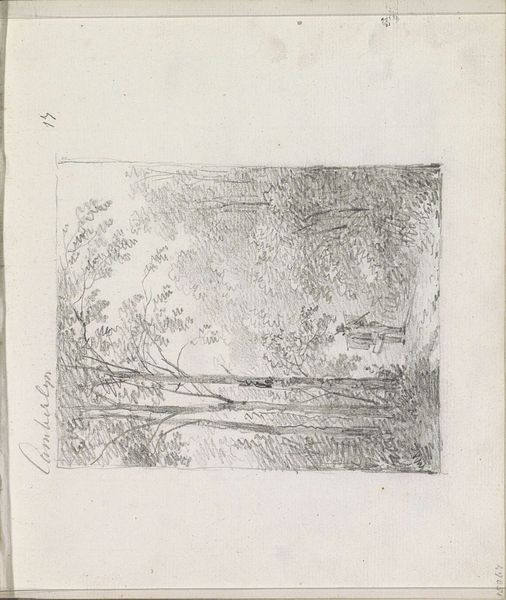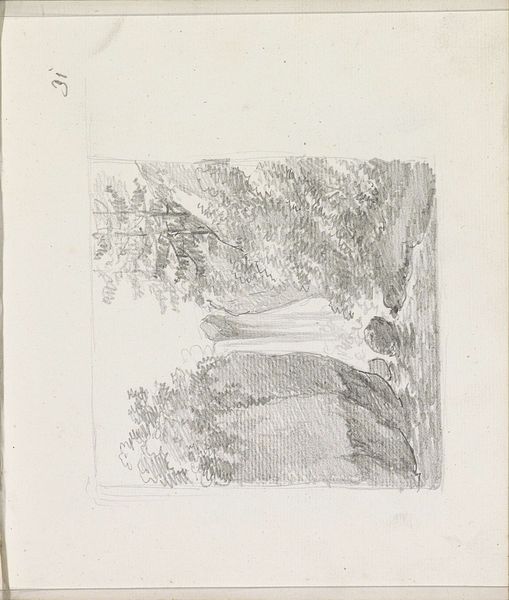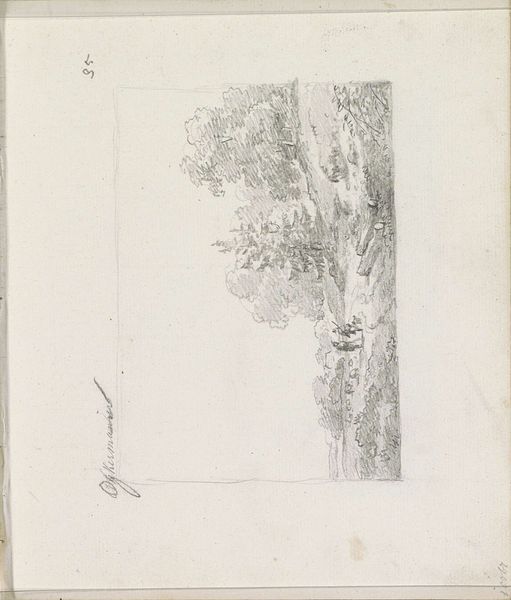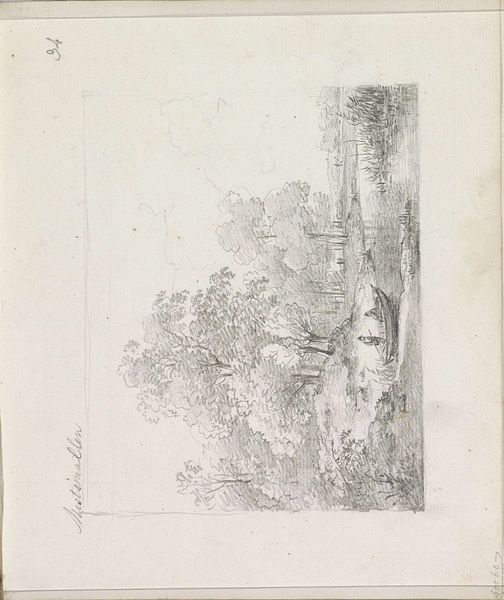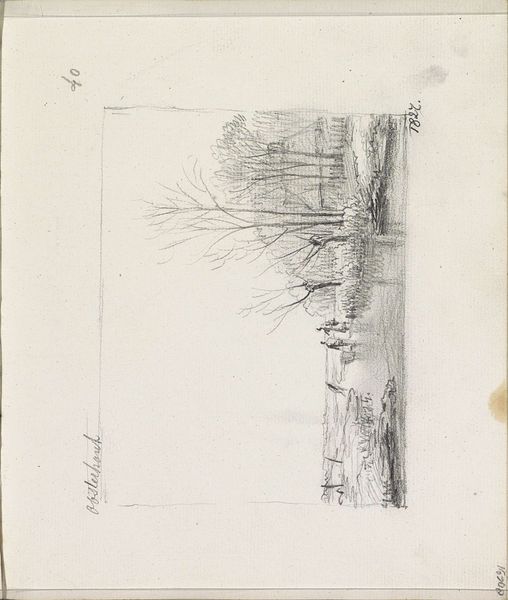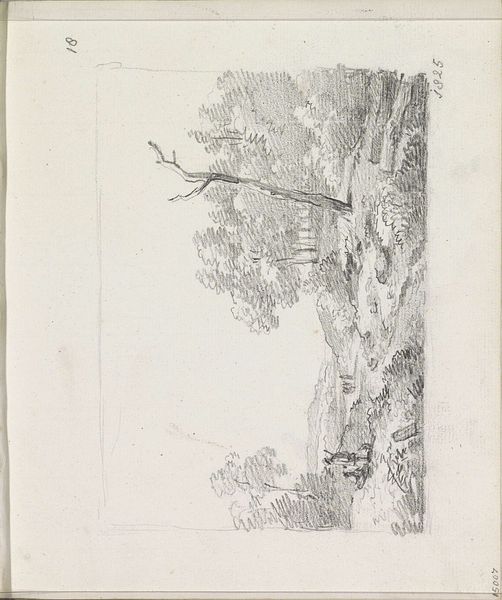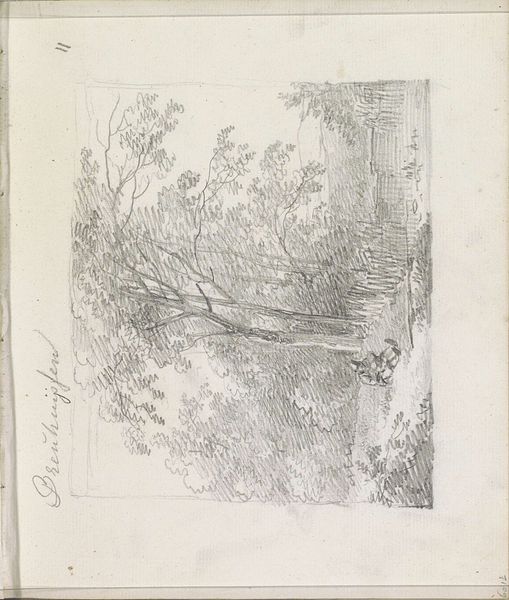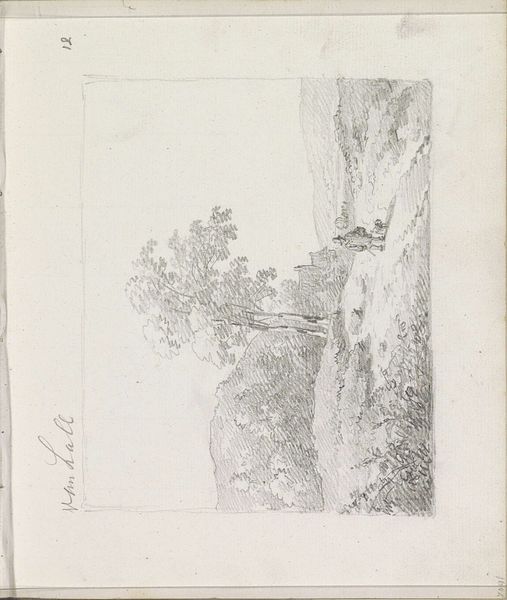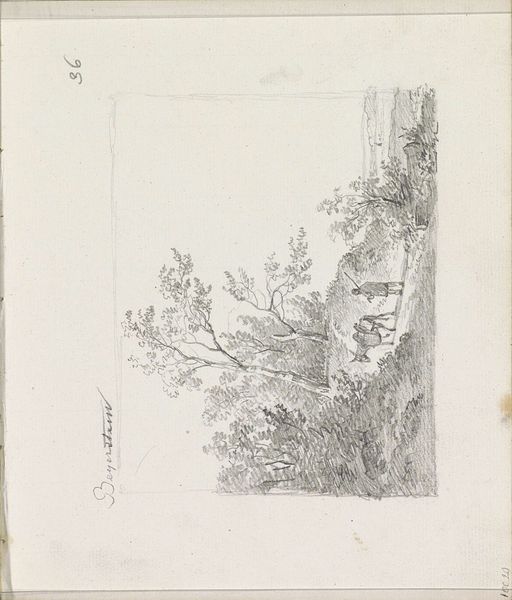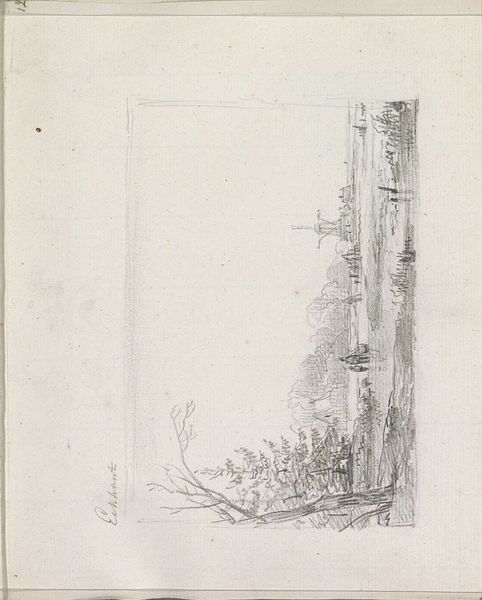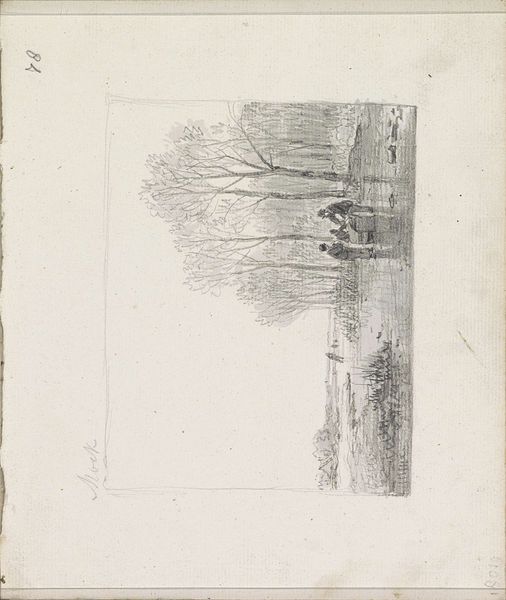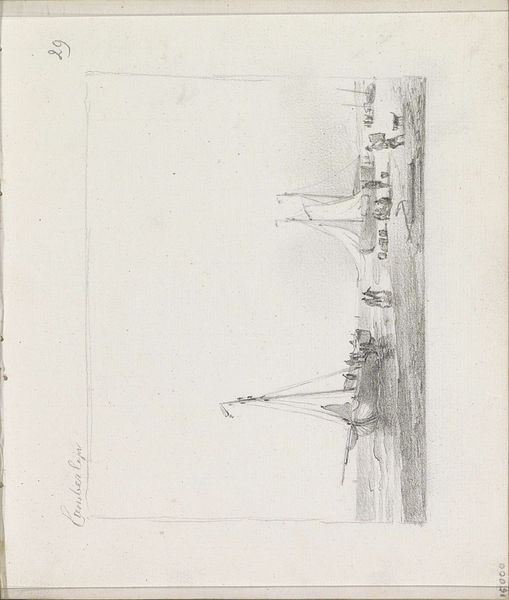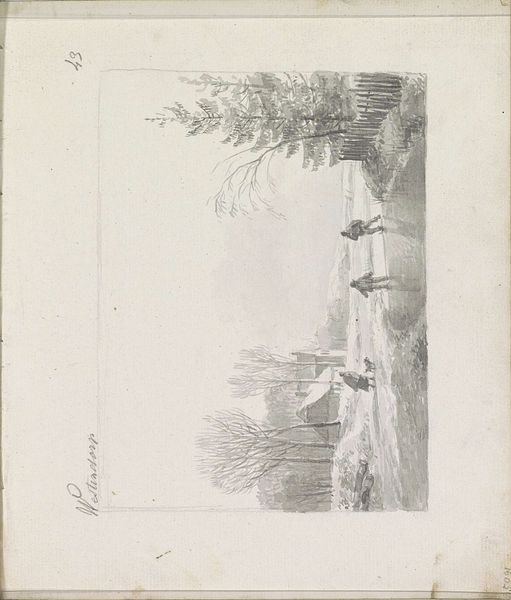
drawing, pencil
#
drawing
#
landscape
#
romanticism
#
pencil
#
realism
Copyright: Rijks Museum: Open Domain
Curator: Let's talk about Andreas Schelfhout's "Landschap met een boerenwoning aan een vaart," circa 1825-1829, a pencil drawing at the Rijksmuseum. Editor: This piece has such a quiet, understated beauty. It feels like a fleeting glimpse into rural life. What stands out to you when you look at this drawing? Curator: Well, considering the material constraints—just pencil and paper—it's remarkable how Schelfhout conveys the texture of the landscape. The cross-hatching and delicate lines become the bricks and mortar, so to speak, of this scene. How does this emphasis on materiality affect your understanding of the depicted subject: the farmer’s dwelling? Editor: That’s a great point. The limitations actually seem to highlight the labor and everyday realities of rural life. It's not idealized; it's tangible, almost rough. Curator: Exactly. It pushes us to consider who had access to such material during this time? Was this a preparatory sketch, a finished piece, or both? How does its existence reflect the art market and Schelfhout’s position within it? Were there cheap reproductions, or was this destined for an elite collector? Editor: I hadn't thought about its role as a commodity! So, rather than just seeing it as a landscape, you're saying the *making* of the landscape—the availability of materials and potential market—is crucial? Curator: Precisely. It allows us to reconsider its relationship to the broader societal forces at play during that era. The physical artwork itself is only the starting point. Editor: That totally changes my perspective. I’ll definitely be paying closer attention to those kinds of questions moving forward. Curator: And I'll be contemplating the tension between art's inherent aesthetic value and its function within a broader economic framework.
Comments
No comments
Be the first to comment and join the conversation on the ultimate creative platform.
